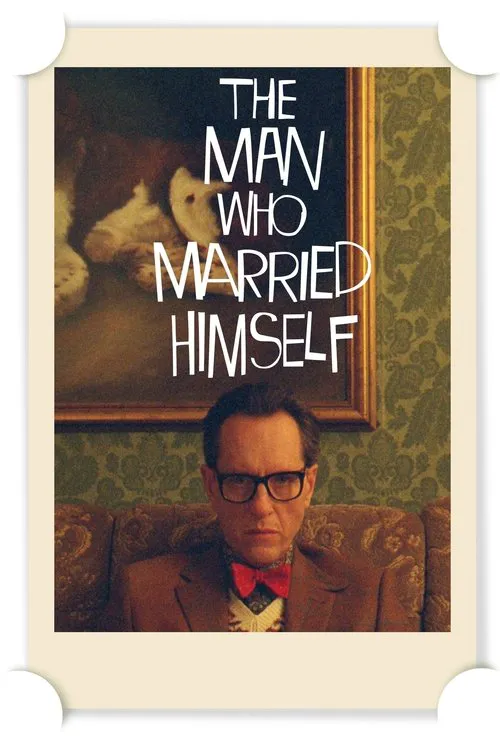The Man Who Married Himself

Plot
The Man Who Married Himself, written by Stephen Metcalfe, is a unique and poignant exploration of identity, loneliness, and the complexities of human relationships. At the core of the film is Oliver, a man in his mid-40s struggling to come to terms with the emptiness of his life. Feeling disconnected from the world around him, Oliver undergoes a profound mid-life crisis, forcing him to re-evaluate his priorities and question the meaning of love and companionship. In a bold and unconventional move, Oliver decides to marry himself, an act that serves as a reflection of his growing sense of self-love and self-acceptance. As he prepares for his solo wedding, Oliver is met with a mixture of confusion and concern from friends and family, who fail to grasp the depth of his emotional struggles. Through his relationship with himself, Oliver embarks on a journey of self-discovery, confronting the darkest corners of his own psyche and slowly unraveling the mysteries of his past. His union with himself becomes a catalyst for introspection, allowing him to examine the relationships he has had and the choices he has made in his life. As Oliver navigates the complexities of his solo marriage, he finds himself oscillating between moments of tender intimacy and brutal honesty. His inner dialogue reveals a rich inner life, marked by both profound vulnerability and scathing self-criticism. His conversations with himself are often witty and incisive, veering between self-deprecation and existential musings. As the story progresses, Oliver begins to confront the societal pressures and expectations that have contributed to his feelings of isolation and disconnection. He grapples with the notion of what it means to be alone, realizing that his marriage to himself is, in fact, a form of self-preservation – a way of holding onto love and companionship in a world that often seems devoid of either. Through his experiences, Oliver comes to understand that his relationship with himself is not a sign of desperation or rejection, but rather a radical act of love and acceptance. His marriage to himself is a testament to the enduring power of human connection, a reminder that we are never truly alone, even in our most solitary moments. As Oliver's journey unfolds, the film skillfully interweaves elements of drama, comedy, and philosophy, resulting in a complex and thought-provoking portrait of a searching soul. His odyssey serves as a powerful exploration of the intricacies of modern life, shedding light on the tensions between love, identity, and loneliness. Ultimately, The Man Who Married Himself is a deeply compassionate and insightful exploration of human experience. Through Oliver's struggles and triumphs, the film reveals the resilience of the human spirit, reminding us that love, no matter how unconventional, is always worth embracing. The film's use of metaphor and symbolism serves to underscore the complexity of Oliver's emotions, underscoring the idea that marriage – whether to another person or oneself – is a transformative and all-encompassing experience. By exploring the possibilities of solo marriage, the film challenges traditional notions of love and relationships, forcing us to confront our own assumptions about what it means to be connected and fulfilled. In the end, The Man Who Married Himself is a moving and nuanced portrayal of a man finding his own way, one that is both deeply personal and profoundly universal. As Oliver navigates the twists and turns of his relationship with himself, he discovers the most essential lesson of all: that true love begins with oneself.
Reviews
Recommendations




